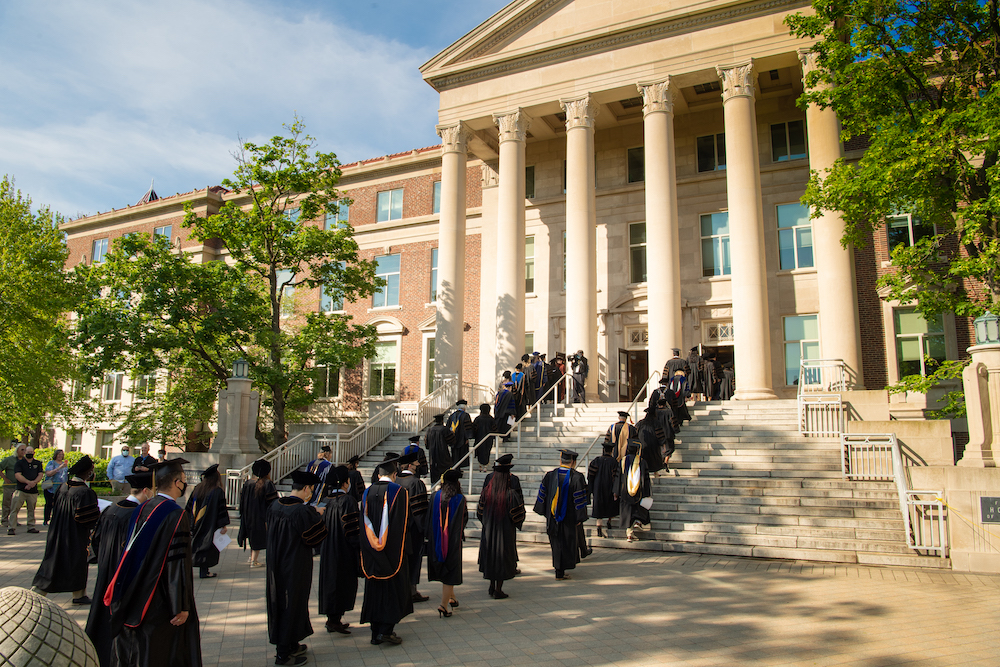CSGrad4Us, a mentorship and fellowship opportunity

Are you a computer science graduate looking to advance your education by pursuing a PhD?
The Computer and Information Science and Engineering Graduate Fellowships (CSGrad4US) support graduate study leading to research-based doctoral degrees in computing disciplines. This program offers support and mentoring to fellowship recipients, creating funding opportunities for pursuing a PhD in computing.
The program aims to increase the number and diversity of domestic graduate students pursuing research and innovation careers in computer and information science and engineering fields. The program helps bachelor’s degree holders return to academia and pursue their research interests, enabling them to engage in innovative and high-impact projects without the burden of financial constraints.
Each year, a diverse cohort of CSGrad4US fellows is selected based on their demonstrated interest and potential in pursuing a doctorate in a CISE field. As of spring 2023, a total of 71 fellows have enrolled in a qualifying doctorate program.
To learn more about this funding opportunity in CSGrad4US Mentoring Program supports and mentors recipients of the fellowships by creating a funding opportunity to pursue a PhD in the computing disciplines.
In its third year, the program provides an opportunity for bachelor’s degree holders to return to academia and pursue research-based doctoral degrees. The fellowship will provide 3-year fellowship opportunities for new PhD students in the computing disciplines.
Purdue's involvement
Professor Susanne Hambrusch is one of four co-principal investigators of CSGrad4US program. She also served as the vice-chair of the CRA Board of Directors from 2015-2019. Professor Eugene H. Spafford and Associate Professor Aniket Bera are serving as coaches in the third cohort for security and robotics-interested fellows.
Professor Spafford, a security researcher focused on issues of computer and network security, cybercrime and and ethics, knows not all are interested in pursuing a PhD upon completion of their bachelor's degree.
"Not everyone wants to pursue a PhD, while some decide to continue on after receiving their undergrad degrees," said Spafford.
"It is never too late to pursue your dreams, and the CSGrad4Us program might be how to do it!"
Professor Eugene Spafford
Spafford added, "Other people don't know they want that degree until years after they graduate and gain some experience, although it may seem too late to do so. It's not! The CSGrad4Us program is intended for this second group: providing counseling, group support, and a scholarship opportunity. It is never too late to pursue your dreams, and the CSGrad4Us program might be how to do it!"
Associate Professor Aniket Bera's research focuses on modeling the human and social aspects using AI in robotics, graphics, and vision. His purpose of serving as a CSGrad4US coach is to help those who are ready to pursue an advanced degree.
"It's not just about going back to school; it's about igniting your passion for innovation, unlocking the frontiers of technology—maybe even in the world of robotics and AI."
Associate Professor Aniket Bera
"The CSGrad4US program opens a new chapter of possibilities for those ready to embrace the journey of pursuing a PhD in computer science," said Bera. "It's not just about going back to school; it's about igniting your passion for innovation, unlocking the frontiers of technology—maybe even in the world of robotics and AI. I challenge you to seize this opportunity to shape the future and inspire the next generation of minds, for in the realm of computer science, the only limit is the one we set for ourselves."
Goals of the CSGrad4US Mentoring Program are:
- To guide returning students through the application process towards a successful CS PhD admission and school selection
- To mentor them through the transition to PhD graduate study in the first year towards high retention.
Program seeks to boost domestic computing PhDs
CSGrad4US was started to address the significant supply and demand imbalance for computing PhDs in the United States. While the rapid growth in undergraduate computing enrollments during the last decade has significantly increased the number of open faculty positions at academic institutions, it has not yet led to a significant increase in the number of PhD students graduating. At the same time, the percentage of PhDs awarded to domestic students has declined.
To increase the interest of domestic students in pursuing a PhD, NSF started the CSGrad4US PhD fellowship program in 2021 by providing three years of financial support for graduates returning to a PhD program in a CISE field after having been in the workforce. The program helps bachelor’s degree holders return to academia and pursue their research interests, enabling them to engage in innovative and high-impact projects without the burden of financial constraints.
Since its launch in 2021, a total of 169 individuals have been selected for the CSGrad4US Fellowship program in three application cycles. Of those, 70 recently began the CSGrad4US Mentoring Program portion, during which they are paired with a coach and work through a series of mentoring sessions and activities. There are currently 68 CSGrad4US Fellows that have already begun their CISE PhD programs. The remaining individuals selected for the fellowship have either deferred their graduate school applications, deferred their graduate enrollment after being accepted, or have decided against attending graduate school.
For more information and a full description of the program, please visit CSGrad4US.